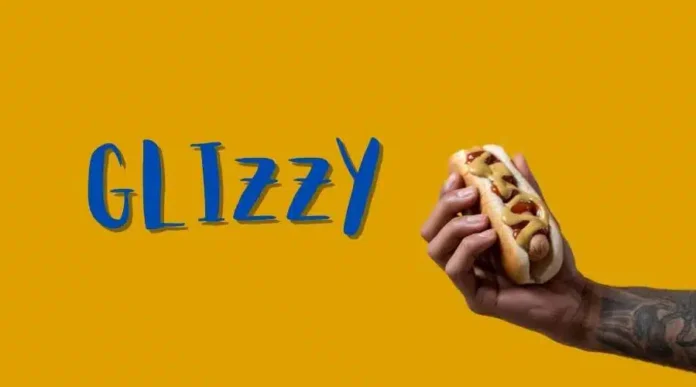In recent years, the term glizzy has surged into the limelight, capturing the curiosity of many. Originally a piece of niche slang, its prominence has escalated, prompting people to ask, “What glizzy meaning?” To understand the full spectrum of its meaning, one must explore its origins, cultural significance, and the role it plays in modern media. From a simple hot dog reference to a symbol of internet trends, glizzy offers an intriguing case study in the evolution of language and cultural phenomena.
The Origins of the Glizzy meaning
The term glizzy finds its roots in Washington, D.C., where it began as a slang word for a firearm. Its association with guns is largely regional, influenced by the specific dialects and street language of the area. Over time, this term started to shift in meaning, gradually making its way into the realm of popular culture. The metamorphosis from a reference to weapons to a casual term for hot dogs highlights how language can transform based on cultural influences and societal trends.
The ‘Glizzy‘ Hot Dog Phenomenon
One of the most unexpected turns in the life of glizzy has been its adoption as a slang term for hot dogs. This usage gained traction through social media platforms and viral videos, where glizzy was used humorously to refer to the popular American snack. The term quickly caught on, leading to a plethora of memes and viral content centered around hot dogs. This phenomenon demonstrates the power of digital culture in repurposing and popularizing slang terms.
The glizzy hot dog trend has not only provided entertainment but has also sparked discussions about food culture and social media’s impact on language. What was once a regional slang term has become a part of everyday conversation, particularly among younger demographics who are more attuned to internet culture.
‘Glizzy‘ in Music and Hip-Hop Culture
The integration of glizzy into music and hip-hop culture marks another significant development in its evolution. Artists and influencers have adopted the term, further embedding it into mainstream consciousness. Hip-hop, known for its innovative use of language and cultural references, has played a crucial role in amplifying the term’s reach.
Songs, social media posts, and music videos have all contributed to the normalization and popularization of glizzy. By incorporating the term into their work, artists have not only given it a new context but have also propelled it into the broader cultural landscape. This crossover from street slang to mainstream media exemplifies how language evolves and adapts within different cultural spheres.
Memes, Challenges, and Internet Trends Around ‘Glizzy‘
The rise of glizzy has been closely tied to internet memes and viral challenges. Social media platforms like TikTok, Twitter, and Instagram have been instrumental in spreading the term. Memes featuring glizzy often play on its humorous connotations, contributing to its viral status.
Challenges involving glizzy have also gained popularity, where participants engage in activities related to the term. These challenges not only entertain but also foster a sense of community among those who partake. The internet’s role in shaping and spreading slang cannot be overstated, as it acts as a catalyst for rapid cultural shifts.
The Influence of Regional Slang and Global Spread
The journey of glizzy from a regional slang term to a global phenomenon underscores the impact of regional dialects on language evolution. While glizzy began in Washington, D.C., its reach has expanded far beyond its geographic origins. The global spread of slang terms is facilitated by digital communication, allowing regional words to gain international recognition.
This phenomenon highlights how language is increasingly influenced by global interactions. The digital age has democratized language, enabling terms like glizzy to transcend their original contexts and find new meanings across diverse cultures. The influence of regional slang on global language trends is a testament to the interconnected nature of modern communication.
Is ‘Glizzy‘ Here to Stay? The Evolution of Modern Slang
The question of whether glizzy is here to stay is a compelling one. The lifecycle of slang terms often involves phases of popularity followed by obsolescence. However, glizzy has shown remarkable staying power, partly due to its versatility and the way it has been embraced by various cultural sectors.
The evolution of modern slang is shaped by factors such as media influence, cultural trends, and social dynamics. Glizzy‘s continued relevance will depend on its ability to adapt and resonate with new audiences. As language continues to evolve, terms like glizzy will either solidify their place in everyday vernacular or fade into obscurity.
Conclusion
The term glizzy exemplifies the dynamic nature of language and its capacity to adapt to cultural shifts. From its origins as a slang term for firearms to its current status as a reference to hot dogs and a staple in internet culture, Glizzy meaning has traversed a remarkable journey. Its rise in popularity underscores the power of social media and popular culture in shaping and spreading language.
As glizzy continues to evolve, it serves as a fascinating example of how slang terms can transcend their origins and achieve widespread recognition. Whether it will remain a prominent part of contemporary language or eventually become a relic of internet culture remains to be seen. Nonetheless, the story of glizzy reflects the ever-changing landscape of modern communication and cultural expression.
Also Read: Guide to new.globe.com.ph.simreg: Understanding Globe’s SIM Registration Portal

